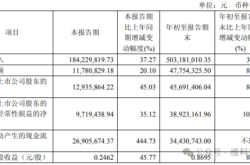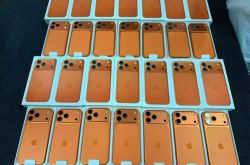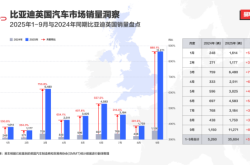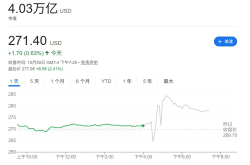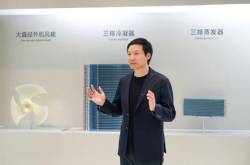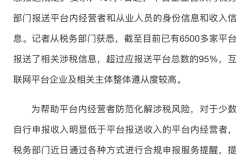Lei Jun's Long-Held Dream: Shedding Xiaomi's "Assembly Plant" Image
![]() 10/31 2025
10/31 2025
![]() 540
540
Can Lei Jun finally put an end to the longstanding concerns?
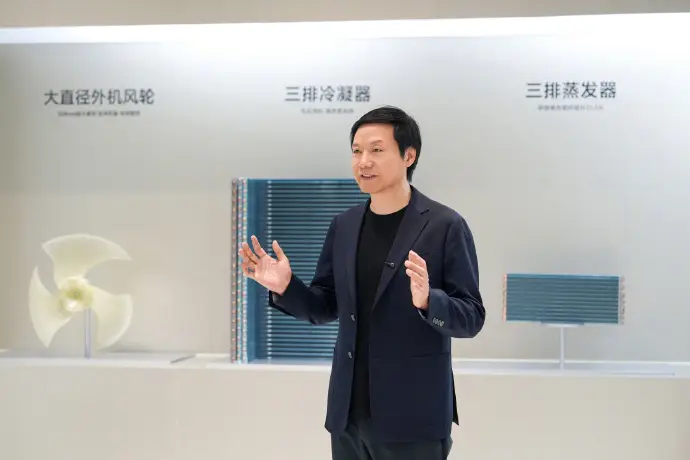
Image Source: Lei Jun's Weibo
On October 28, Xiaomi's Wuhan Smart Home Appliance Factory officially commenced production, with the initial phase's capacity mainly dedicated to air conditioning products. This marks Xiaomi's third self-built large-scale smart factory, following the Xiaomi smartphone smart factory in Changping, Beijing, and the Xiaomi Auto Super Factory in Yizhuang, Beijing.
According to publicly available data, Xiaomi's Smart Home Appliance Factory in Wuhan spans 500,000 square meters. It encompasses six core air conditioning sub-factories, along with supporting facilities such as experimental buildings and finished product logistics warehouses. The factory achieves full digitalization and intelligence in production, information, and equipment. The first phase of the project involved an investment of 2.5 billion yuan, achieving an astonishingly rapid production start within just 336 days, with a planned peak annual production capacity of up to 7 million units.
The Verbal Sparring Over Xiaomi Air Conditioners
As Xiaomi's inaugural self-built smart home appliance factory and Lei Jun's commitment to investing in industrial development for his hometown, both Lei Jun and Xiaomi President Lu Weibing attended the site on the same day to witness the production commencement ceremony, underscoring its significance.
During his speech, Lu Weibing highlighted that Xiaomi has established a comprehensive industrial closed loop in Wuhan, encompassing "design, research and development, production, and verification," with research and development centers, experimental centers, and manufacturing centers in place. Wuhan serves as the stronghold for Xiaomi's "Home" ecosystem. Looking ahead, the Xiaomi Smart Home Appliance Factory is poised to become the core manufacturing hub for Xiaomi's large home appliances and will also be built into a benchmark for intelligent manufacturing.
Although Lei Jun did not speak, his relaxed demeanor was evident.
Following the event, he posted on Weibo that Xiaomi has taken another significant stride in the field of intelligent manufacturing. The Xiaomi Smart Home Appliance Factory can produce a high-end air conditioner every 6.5 seconds, with key components undergoing 100% AI visual quality inspection. The "Xiaomi Surge Intelligent Manufacturing Platform" enables intelligent control of manufacturing equipment, reaching industry-leading levels in both efficiency and quality.
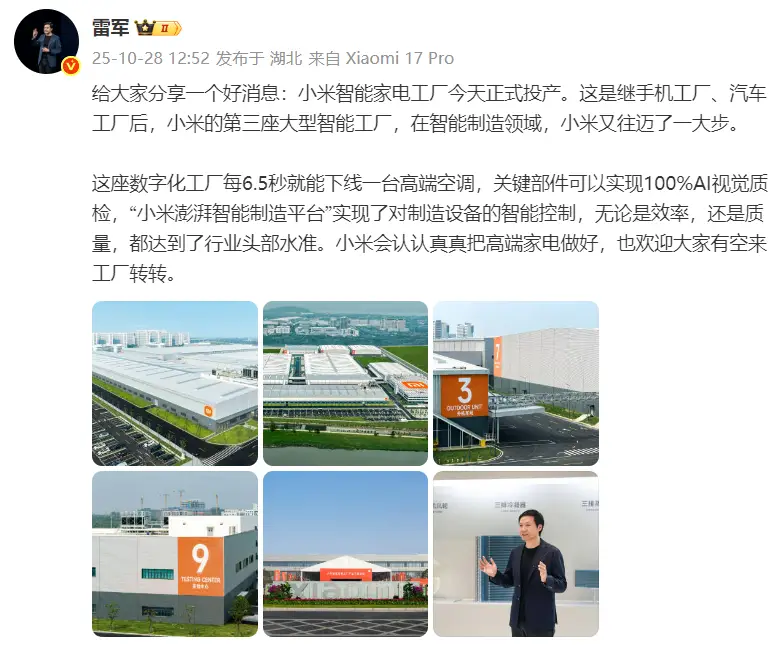
Image Source: Lei Jun's Weibo
This milestone signifies that Xiaomi's "Human-Vehicle-Home Full Ecosystem" strategy has added another crucial piece, achieving a closed loop with large-scale self-built smart factories.
In fact, prior to the production commencement of this smart factory, Xiaomi's air conditioning products were embroiled in controversy. In August of this year, a debate erupted on social media regarding "Xiaomi's online air conditioner sales surpassing Gree's." Xiaomi President Lu Weibing, Xiaomi Public Relations General Manager Wang Hua, and Gree Marketing Director Zhu Lei engaged in a back-and-forth debate over "who is truly leading." Wang Hua even penned a doggerel poem to "mock" the situation.
On the surface, this appeared to be a "ranking dispute" triggered by differing statistical methods, but in reality, it reflected the turmoil caused by Xiaomi, as the biggest variable in the air conditioning industry, disrupting the existing market landscape. In the second quarter of 2025, Xiaomi's air conditioner shipments exceeded 5.4 million units, with growth exceeding 50% for three consecutive quarters. According to data from AVC Cloud Network, Xiaomi ranked fourth with a 10% market share.
In September of this year, Xiaomi introduced a "10-Year Free Repair" service for its air conditioners. Zhu Lei once again "countered" by stating, "A 10-year free repair guarantee is a promise, but going 10 years without needing repairs is true strength," and mentioned that Gree had already proposed a "10-Year Free Repair" policy in 2021, with its products having undergone 30 years of market verification.
Behind this verbal sparring lies the reality that Xiaomi's contract manufacturing model has faced skepticism from the industry and the market.
When Xiaomi entered the market with its Mijia Internet Air Conditioner in 2018, it initially adopted a contract manufacturing model. This approach, which is Xiaomi's forte and how it started, has also been criticized as "just a brand labeler without core technology."
Dong Mingzhu, the chairwoman of Gree Electric Appliances, once publicly questioned, "What is your technology?"
In May of this year, some consumers noticed that the manufacturer listed on the outer packaging of Xiaomi air conditioners was "Beijing Xiaomi Electronic Products Co., Ltd.," while the internal label indicated the manufacturer as Sichuan Changhong Air Conditioner Co., Ltd. Some netizens joked, "It's more cost-effective to buy Changhong directly."
Under these circumstances, the significance of this self-built smart home appliance factory for Lei Jun and Xiaomi is self-evident.
In the statements made by Lei Jun and Lu Weibing, keywords such as "closed loop," "AI quality inspection," "intelligent manufacturing," "benchmark factory," and "industry-leading standards" all reinforce a new perception externally: Xiaomi is no longer just setting standards and brand labeling but has truly mastered the entire product chain from components to finished products.
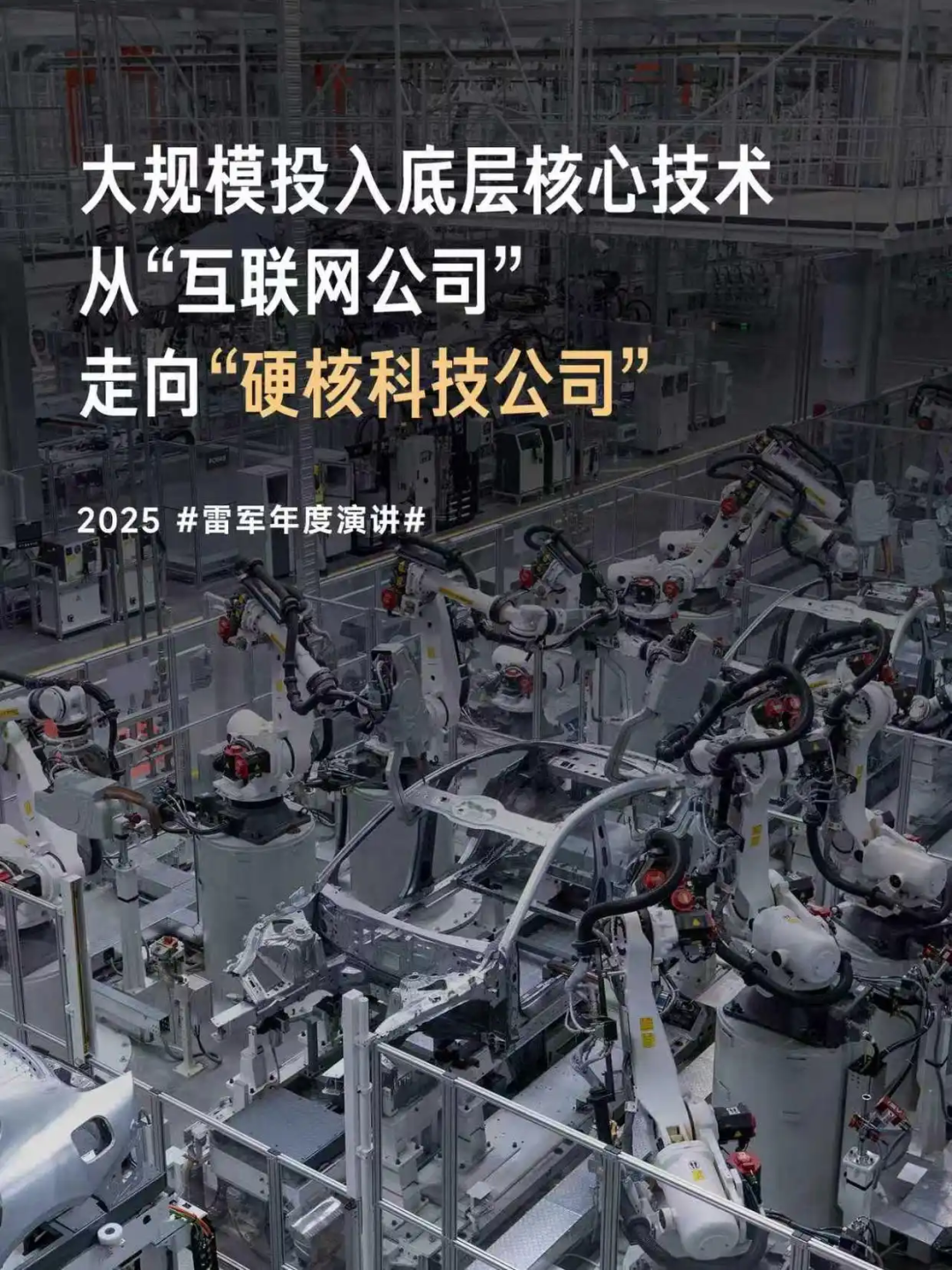
Image Source: Lei Jun's sixth personal annual speech poster
This also reflects a core transformation logic for Xiaomi in recent years: shifting from a contract manufacturing model (assembly plant) to hardcore self-manufacturing (intelligent manufacturing). In Lei Jun's words, this means making large-scale investments in core underlying technologies and transitioning from an "internet company" to a hardcore technology company.
Lei Jun's Longstanding Concern and Xiaomi's Self-Proof
To some extent, the external skepticism about "Xiaomi being an assembly plant" has been a longstanding concern for Lei Jun. Before large home appliances like air conditioners became new growth engines for Xiaomi, the company had already been labeled as an "assembly plant" due to its smartphone business model.
The origin of this label is not complex: Early Xiaomi smartphones used Qualcomm chips, Samsung screens, and Sony cameras, with assembly contracted to manufacturing plants. Pursuing a cost-effective route, Xiaomi's products were priced affordably, leading to the external impression that it "lacked technology," "only integrated components," and "relied solely on marketing."
This left Lei Jun feeling wronged. During his sixth personal annual speech this year, he poured out his frustrations, stating that many people do not truly understand Xiaomi and harbor many ingrained prejudices. He mentioned that online comments often anger him, such as "Xiaomi is just an assembly plant," "it lacks technology," and "it only relies on marketing and won't go far."
Lei Jun said these voices once caused him severe internal turmoil.
He and Xiaomi's management have also publicly responded on multiple occasions, directly refuting the claim that "Xiaomi is an assembly plant." For instance, during a live stream following Lei Jun's personal annual speech last year, he pointed out that many competitors, including Apple, also use contract manufacturing, and Xiaomi is no different. However, he expressed confusion over why some people label Xiaomi as an assembly plant.
He even questioned, "Do people really think Xiaomi smartphones are simply assembled from off-the-shelf components and then released?"
Half a month before that live stream, Xiaomi's Changping smartphone factory was completed and put into operation. The factory involved an investment of 2.4 billion yuan, has a construction area of 81,000 square meters, and can produce up to 10 million flagship smartphones annually.
Lei Jun emphasized at the time that the factory boasts extremely high automation, with its biggest highlight being that most of its equipment is independently developed.
On October 17 of this year, Lu Weibing appeared on the People's Daily Online "Debate" program, where he once again responded to skepticism such as "Xiaomi lacks technological content, is just an assembly plant, and relies solely on marketing."
He stated that the essence of tech consumer goods still lies in technology and products, with products being fundamental and marketing merely an amplifier. If the product is not good, no amount of strong marketing can sell it.
Regarding the "assembly plant" label, Lu Weibing responded that contract manufacturing is an advanced form of industrial division of labor, and Xiaomi also manages its contract manufacturers. Last year, Xiaomi even opened two of its own factories.
From Lei Jun and Xiaomi's perspective, it is imperative to shed the label of "Xiaomi being an assembly plant."
On one hand, this label directly threatens Xiaomi's aspirations to move upmarket and even touches upon Xiaomi's fundamental identity anxiety, strategic transformation, and long-term survival logic. In terms of smartphones, consumers recognize Apple, Samsung, and Huawei's positions in the high-end market, primarily due to their underlying capabilities in chips, systems, ecosystems, and core technologies, which have earned them market trust in terms of technology, rather than relying solely on hardware specifications and benchmark scores.
If Xiaomi is perpetually seen as following a "smartphone assembly" model, it faces the existential issue of stagnant product sales, thin profits, and difficulty in brand elevation.
On the other hand, this concerns Lei Jun's personal dignity and Xiaomi's historical standing. Lei Jun is a rare "serial entrepreneur" in China's tech circle, and Xiaomi, including Xiaomi Auto, represents his final entrepreneurial venture. He has always wanted to prove that Chinese companies can also create world-class tech products.
Xiaomi initially succeeded with its cost-effective "1999 yuan" and "Born for Tech Enthusiasts" model. However, Lei Jun is also well aware that a company without core technologies is like a house built on sand—it may look beautiful, but a strong gust of wind could topple it.
At the same time, in investors' eyes, an "assembly plant" and a "tech company" are two entirely different entities. If Xiaomi is labeled as the former, it will never receive valuations like those of Apple or NVIDIA.
Lei Jun's repeated emphasis on "Xiaomi being a hardcore tech company" is his way of telling the market and users a new story: Xiaomi is not a contract manufacturer, not a channel distributor, not an internet company, and certainly not an assembly plant. Instead, it is a hardcore tech company that keeps pace with the times and possesses underlying innovative capabilities.
Clearly, building self-owned factories, developing in-house chips, and manufacturing cars are all inevitable steps for Lei Jun and Xiaomi to shed the "assembly plant" label.
Currently, this heavy-investment response approach is deemed effective by Lei Jun. He cited an example, stating that a few years ago, there were many people online labeling Xiaomi as an assembly plant. However, after the production commencement of Xiaomi's smartphone and auto smart factories last year, such criticisms have almost disappeared.
References:
Caijing Cover, "Lu Weibing Vows to Reach Top Two in Five Years: What Gives Xiaomi Air Conditioners the Edge?"
Lei Jun's Personal Annual Speech, Weibo, etc.

